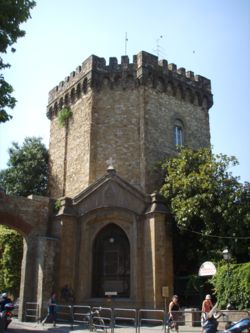You can help expand this article with text translated from the corresponding article in Italian. (March 2021)Click [show] for important translation instructions.
|
This article relies largely or entirely on a single source .(November 2025) |

Santa Rosa Church [1] is a sanctuary church located in Florence in the region of Tuscany, Italy.